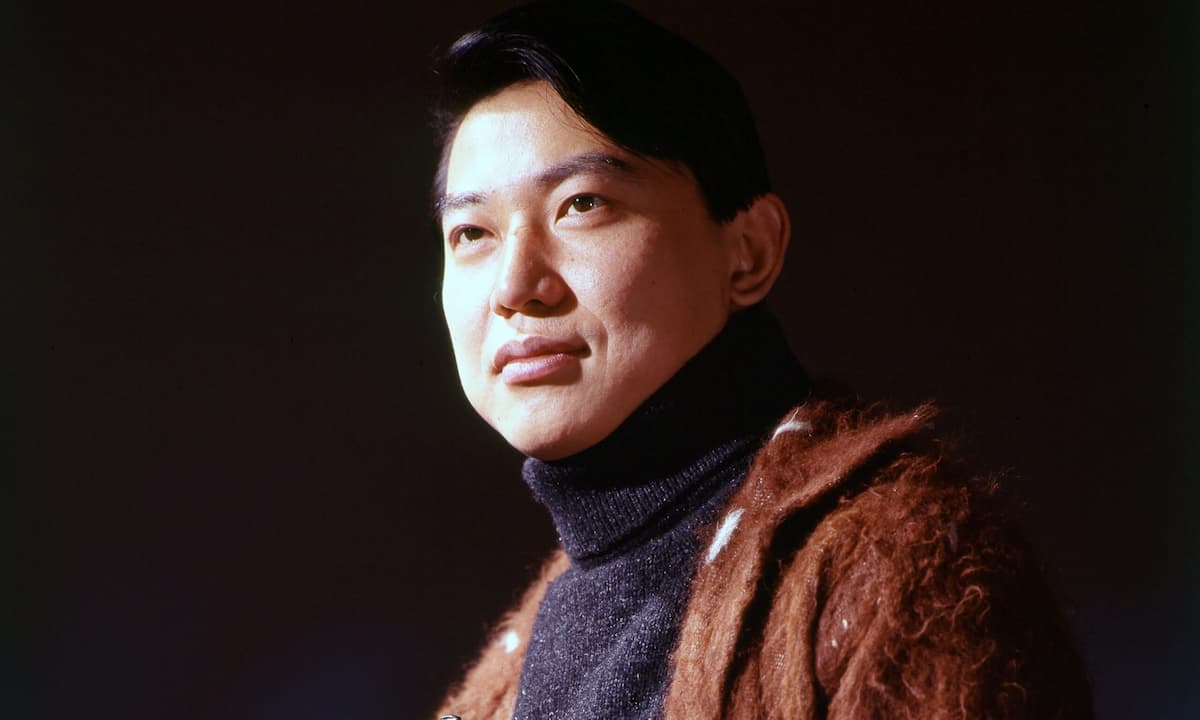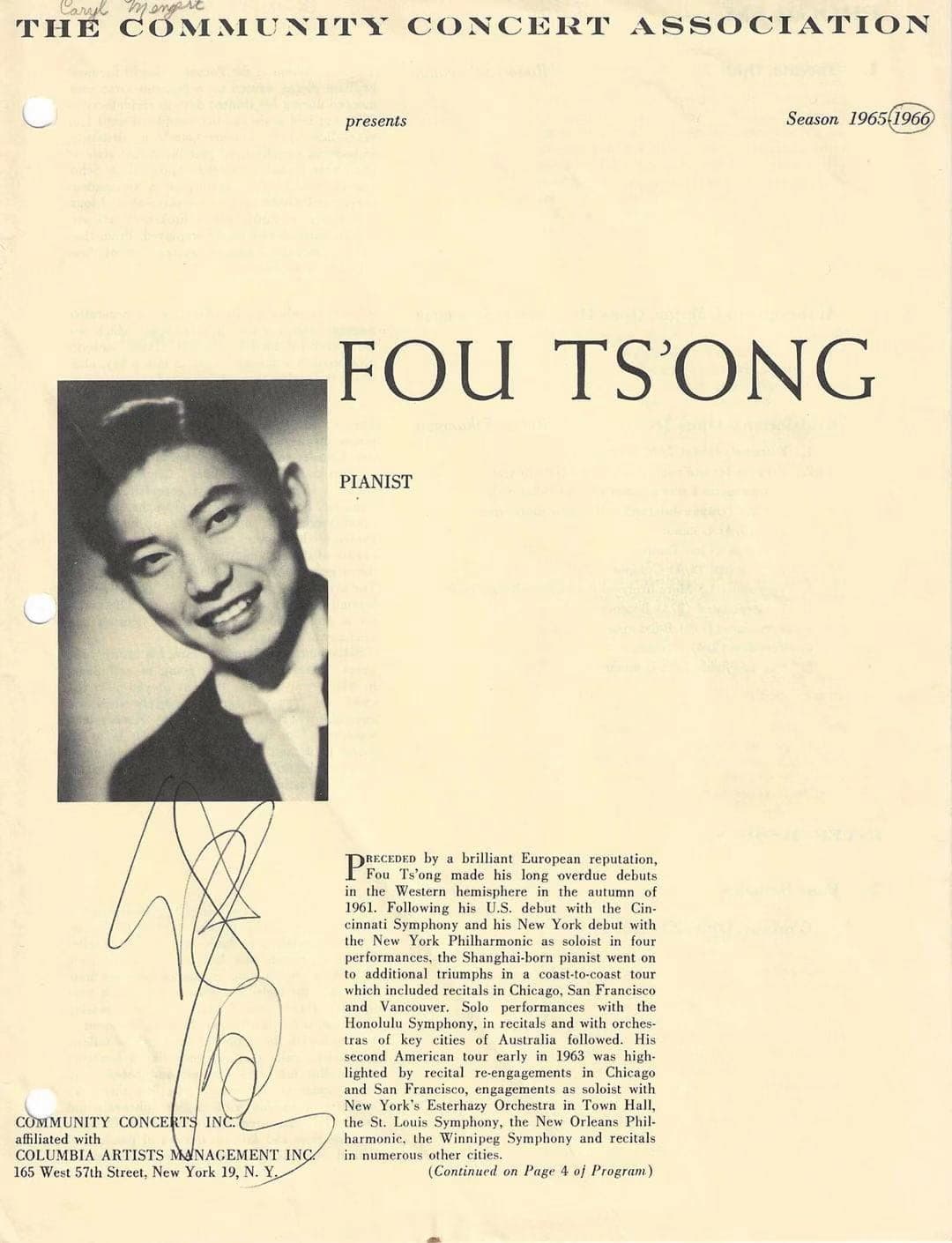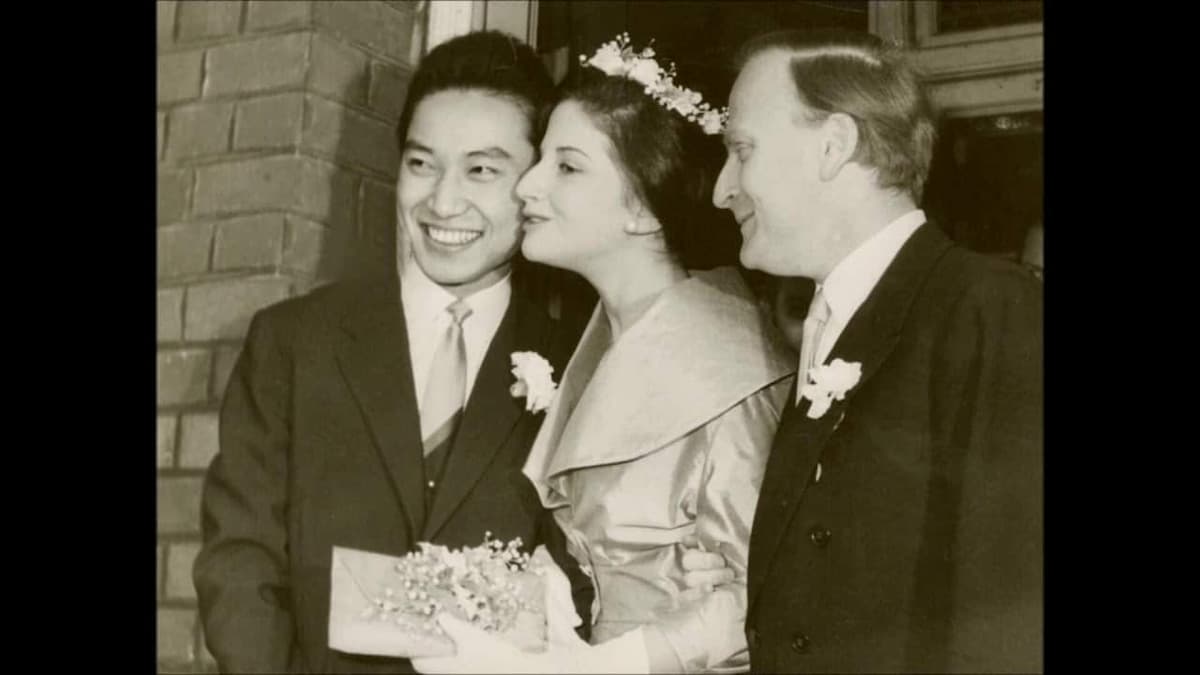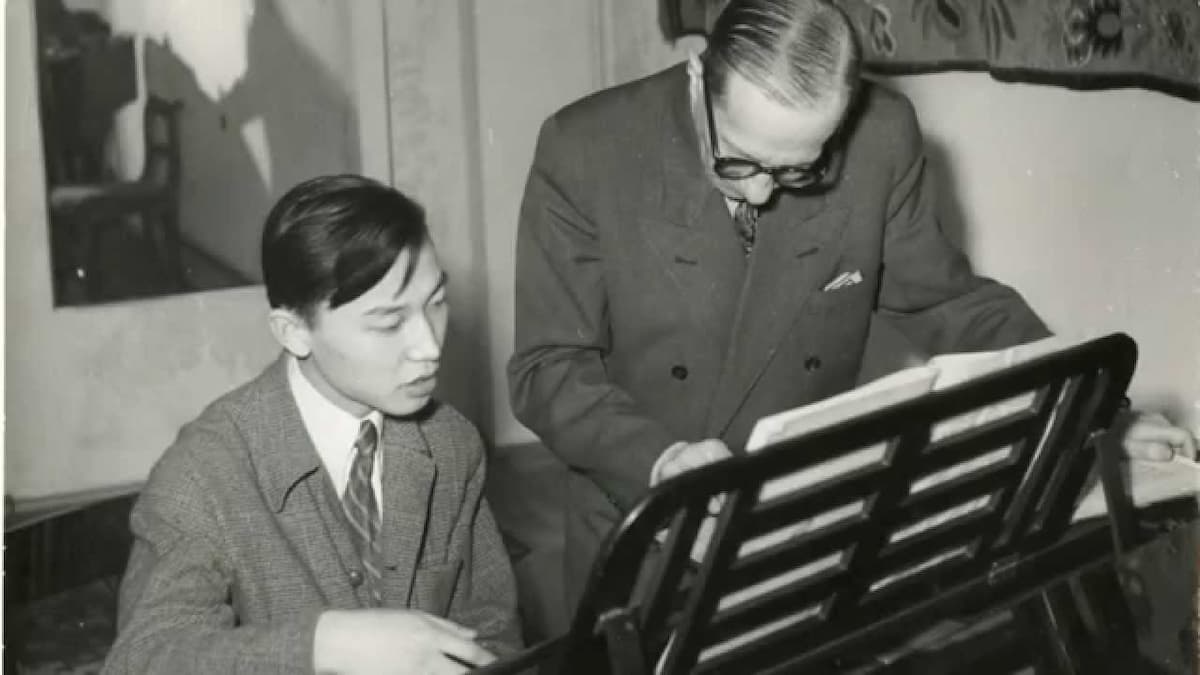The original Chinese poet of the keyboard Fou Ts’ong, born on 10 March 1934 in Shanghai, was always reluctant to talk to journalists about his personal affairs and his relationship with the China he had left behind. “I tried to avoid any kind of political involvement,” he explained, “as I wanted to be judged solely as a musician, and if I survived, I hope it was because of my work and nothing else.”

Fou Ts’ong
He had achieved global recognition when he was awarded the third place in the International Chopin Piano Competition in Warsaw in 1955. And predictably, be became a national hero in China, as the country’s proof that “they could stand on its own artistically in the West.” However, once Mao Zedong came to power two years later, the political climate completely changed. Fou’s father, the leading Chinese scholar and noted translator Fu Lei was purged as a “rightist” for having criticized China’s cultural policies and for demanding more freedom.
Frédéric Chopin: Mazurka No. 1 in F-Sharp Minor, Op. 6, No. 1 (Fou Ts’ong, piano)

A signed programme note of Fou Ts’ong’s New York performance
Fou Ts’ong had been sent to Poland by the Chinese government to study Chopin, and he was certain of his fate if he should return home. “At this time,” he explained, “I myself hadn’t yet been officially condemned simply because I was abroad. I was very well known in Poland, the public liked me, so they couldn’t very well haul me off and purge me just like that, but it was coming. All the signs told me that I stood no chance, and I was especially scared because in this case it wasn’t only myself but also my father. You see, in China, if you happen to come from a prominent family, either with several brothers, or a father and son, or father and daughter, these are the most terrifying cases. They usually go for the father to get at the son, and vice versa. And so I thought if I went back, that would certainly be the end for both my father and me. On the other hand, if I stayed there would still be a risk, but I thought they wouldn’t be as primitive as all that and wouldn’t treat my father worse just because I left. I was sure it would be much worse with the two of us there, they would simply brand us as two counter-revolutionaries.”
Franz Schubert: Piano Sonata No. 21 in B-flat Major, D. 960 (Fou Ts’ong, piano)

Fou Ts’ong with his wife Zamira Menuhin and violinist Yehudi Menuhin
Fou Ts’ong always believed that he was forced into exile, and that his decision to settle permanently in London had nothing to do with any ideological preferences or love for the West. “About my leaving, I always felt full of regret and anguish,” he recalled in an interview. So many intellectuals in China had suffered, he said, but he had escaped. “I felt uneasy, as if I owed something to all my friends,” he said. Meanwhile in China, his parents were humiliated and tortured for weeks, until the couple, “like many other Chinese, were driven to suicide; Fou did not learn of his parent’s deaths until many months later.” When he was asked about his attitude about the Cultural Revolution, Fou Ts’ong explained that “so many people perished, every family has someone who was persecuted… It isn’t only a question of the intellectuals and artists, or the young people who are demanding human rights. The Communist ideology is in many ways similar to a religion, they felt guilty if they didn’t adhere to the dogma. But what happened was so appalling that they just couldn’t go on lying to themselves any longer. In that sense I really believe the Cultural Revolution has done some good.”
Frideric Handel: Keyboard Suite No. 8 in G Major (Fou Ts’ong, piano)

After 22 years of exile in the West, Fou Ts’ong was allowed to visit China for the first time, ostensibly to attend a memorial service for his parents. “In the end, I wouldn’t say that it was the authorities who asked me to return, or me who asked them, it was neither,” explained Fou Ts’ong. When a Chinese delegation visited Britain to study music education in 1978, he discovered that some of the delegates were old friends from the Shanghai Conservatory. It was suggested that he “might attend a ceremony of rehabilitation of his father planned for the end of 1978. Fou Ts’ong did eventually go to China, and he was asked to give recitals and teach master classes at music conservatories in Peking and Shanghai. He was very much impressed with the number of students applying to attend various conservatories, and found an enormous reservoir of both talent and dedication. As he explained, “there are few problems on the performing side, these young Chinese musicians are technically superb and quite up to international standards. Things are far more difficult where artistic creation is concerned, writers, composers, and painters. There, you always have the problem of ideology. The constraints of orthodoxy and ideological correctness.” As his former student William Youn tellingly writes, “You could feel his scars inside him, the pain he carried, which he tried to heal everyday through music.”
For more of the best in classical music, sign up to our E-Newsletter
Frédéric Chopin: Piano Sonata No. 2 in B-Flat Minor, Op. 35, “Funeral March” (Fou Ts’ong, piano)
